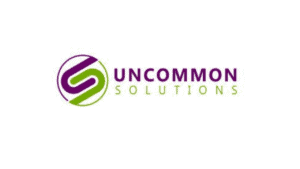We often get this question, so we figured we’d bring the answer to your inbox. Here are the options:
- In a good economy
- In a bad economy
- Both
While many tend to think it isn’t necessary to train your team while business is booming, the reality is that training is an ongoing process that needs to be included as a routine component of any salesperson’s career. So, the best answer is C — both. Here are the reasons why.
In a Good Economy
- Business is good
- Products are flying off the shelf
- Don’t have enough people to do all the work or services
- Salespeople are already managing pipelines too large
- Internal support teams struggle to maintain quality and accuracy with high-volume
In a Bad Economy
- People are tightening their budgets
- People are cutting discretionary spending and limiting unnecessary costs
- Being choosy from whom they buy or not buying at all
- Inflation — items cost more, forcing companies to make price increases
- More competitive, buyers are more reluctant to take sales calls
Training is wise in a good economy
We get it — you’re probably asking yourself: “If I can’t keep up with orders and products are flying off the shelf, why do I need to train my people?” Well, a trained sales force will improve the overall, long-term quality of your customer’s experience and ensure that when things take a turn for the worse, your team is prepared and ready to take on the challenges of a bad economic climate. Employees with consistent training:
- Represent your brand well
- Build lasting relationships founded on trust
- Effective at qualifying and disqualifying prospects
- Executing the sales process
- Shorten the time from introduction to close
- Build memorable relationships across all types of economies, so when the economy turns (and we all know it does), customers will continue to buy from the people they have the strongest trust and relationship with.
- Provide a better end-to-end experience by learning customer expectations, ensuring accurate, on-time, and quality delivery, and always working towards meeting or exceeding customer expectations.
Basically, it’s good for your clients when you have trained salespeople on your staff.
Training is also wise in a bad economy
Should training your salespeople be considered a necessary investment or a discretionary expense if you find less money in your budget during a down economy? A trained salesperson sells on value, not on price, helps their customers identify the real problem they are trying to solve, and differentiates themselves from other people who sell similar products or services. When people are being extra selective about how to spend their money, they are going to buy from the ones who take the time to understand their business and their true problems. So, as leads dry up and revenue goes down, ensuring your sales force is equipped to weather the storm of a slow market is more critical than ever.
Keep the training going year-round
In all economies, a trained sales force is the best long-term differentiator over your competition. It’s a necessary investment that will separate your business from the rest of the pack by creating an industry-leading customer experience that results in customers for life.
Don’t wait until it is too late to start
When is the best day to plant a tree? Twenty years ago and today! Also, developing a high-performing sales team takes time, so get started right away! Be proactive, don’t be caught off guard, and let us help along the way. Get in touch with the Topaz Sales Consulting team to learn more about our solutions for your year-round training needs, regardless of how our economy is holding up.







